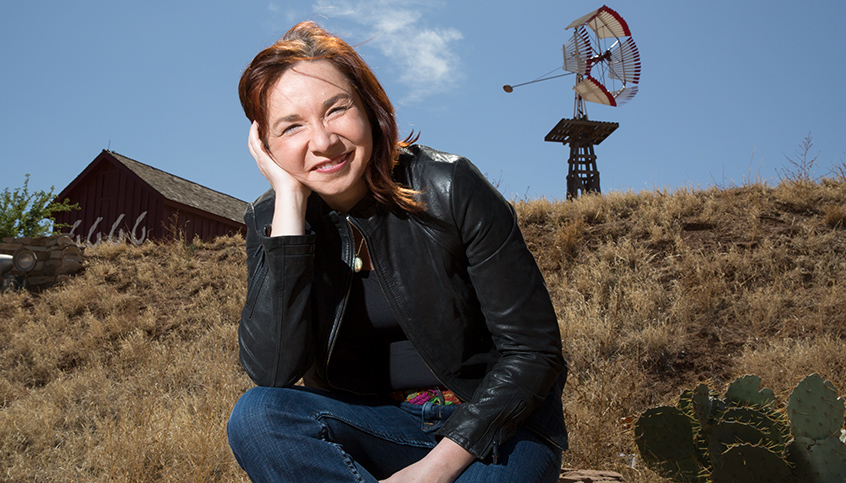
Katharine Hayhoe
[The Episcopal News] Internationally renowned climate scientist Katharine Hayhoe will keynote a diocese-wide webinar set for 6:30 p.m. on Wednesday, Nov. 20 by the Bishop’s Commission on Climate Change. Attendees are asked to register here.
Hayhoe is chief scientist for The Nature Conservancy and a Paul Whitfield Horn Distinguished Professor and the Political Science Endowed Chair in Public Policy and Public Law in the Department of Political Science at Texas Tech University, where she is also an associate in the Public Health program of the Graduate School of Biomedical Sciences. In addition, she is a principal investigator for the Department of Interior’s South-Central Climate Adaptation Science Center and the National Science Foundation’s Global Infrastructure Climate Network.
Hayhoe notes that her research “currently focuses on establishing a scientific basis for assessing the regional to local-scale impacts of climate change on human systems and the natural environment. To this end, I analyze observations, compare future scenarios, evaluate global and regional climate models, build and assess statistical downscaling models, and constantly strive to develop better ways of translating climate projections into information relevant to agriculture, ecosystems, energy, infrastructure, public health, and water resources.”
The Bishop’s Commission has chosen the theme “Now Is the Time for Urgency and Hope” for the webinar, which follows last year’s well-attended diocesan climate change summit keynoted by seismologist Lucy Jones, senior warden at St. James’, South Pasadena. The commission – chaired by the Rev. Canon Melissa McCarthy, diocesan canon to the ordinary – has set a pattern of alternating a webinar with a biennial in-person summit, thus reducing the carbon imprint that would be created by an annual event.
Among current projects, the commission’s education subcommittee is identifying a liaison from each of the diocese’s 133 congregations, some of which have “green teams” in place. The commission’s other active subcommittees focus on advocacy, legislation, solar panels, and disaster resilience. More information is online here.
